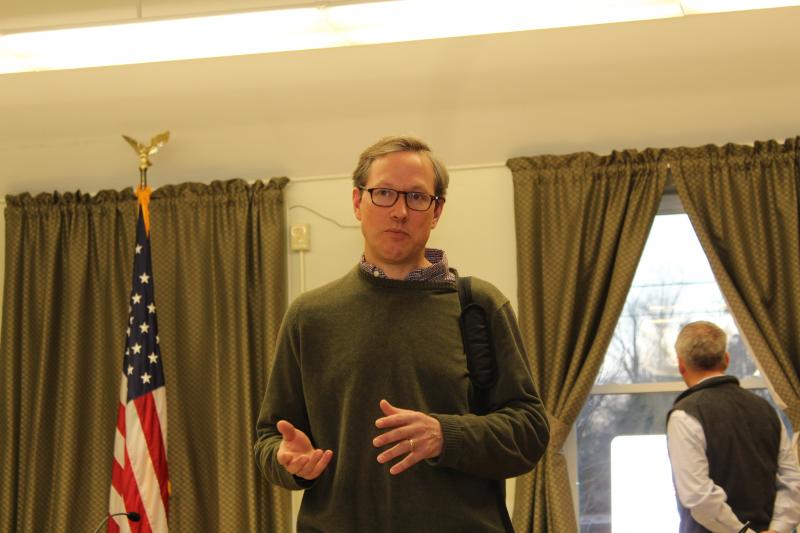Solar on Wiscasset’s Horizon

by: GINA HAMILTON
Stephen Barrett, a contractor for Barrett Energy Resources Group doing work for Cenergy Power, came to Wiscasset on Nov. 25 to answer questions about Cenergy’s proposed solar project at Wiscasset Municipal Airport.
The project is under a lease option while the company determines if the 10 mW solar farm is viable.
Barrett co-wrote the Federal Aviation Administration manual about solar projects at airports. He has worked on airport solar projects nationally, most recently at Cenergy’s Indianapolis Airport project, and internationally, especially in Africa, where solar projects help keep airports open in power failures.
Barrett said the economics of solar projects depends in large part on incentives and public policy decisions that favor carbon-free energy sources. “Gov. Janet Mills signed legislation to develop a solar economy in Maine,” Barrett said.
The solar bill was signed at the end of June, requiring utilities to buy solar power from providers at a set price, reflecting the value of the solar farm over the lifetime of a project, and allowing for the initial high cost of materials and equipment – a cost which drops to almost nothing after the first year.
Barrett said Cenergy and its holding company, BAP, are 12 years old. He said the two should be considered a single company. It has a bonding capacity of $75 million per project, which he said should be well about the cost of the Wiscasset project. Once the solar farm is running, the town will recoup $1,000 per acre, or $50,000, per year, for 21 years.
Barrett said the two years of the lease option would be enough time for all the permitting and building of the infrastructure if the terrain is workable. He said FAA approval typically takes about one year after the application is submitted. An application for the Wiscasset project has not yet been submitted as town, and state permits are being pursued first.
Wiscasset has signed a lease-option with Cenergy but still needs planning board approval, a building permit, and various state approvals, such as the Department of Environmental Protection. The terrain must work for a solar farm. Central Maine Power must approve the power line the energy will travel through. And then, the FAA must make certain the solar farm does not interfere with aviation.
The line would run along Old Ferry Road, along wires that can carry 12 kilowatts, which should be adequate, Barrett said. The solar farm will sport a single axle solar tracking system that will daily track the sun from east to west.

